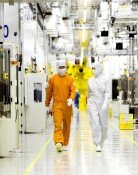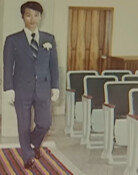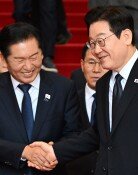Pointless Industry-wide Negotiations
Pointless Industry-wide Negotiations
Posted July. 07, 2004 22:12,
Although the KCTUs (Korea Confederation of Trade Unions) medical labor union general strike ended last June 23, by negotiations with management, a few unions - such as the ones at Seoul National University, Kyungbuk National University and Gwangmyung Sungae hospitals are still on strike as of July 7, two weeks after the conclusion of the general strike.
The reason why the local unions are prolonging their strike is, Although industry-wide negotiations are finished, negotiations on the local union level are not finished.
Employers, patients, and even some inner members of labor unions are criticizing, Why were industry-wide negotiations needed if it was going to turn out like this?
Furthermore, the medical labor union plans on holding a second strike on July 14, aggravating the situation for patients at hospitals such as Seoul National University Hospital.
What is the Need of Industry-wide Negotiation?
The medical labor union went from this years first industry-wide negotiations to strike and settled, but as of July 6, out of the 121 local medical unions, only 53 have finished talks while 60 other hospitals, including SNU Hospital, are having difficulties in negotiations.
The employers (the hospitals), who compromised for an industry-wide settlement, despite the different conditions of each hospital, expressed their discontent, If we started local negotiations from the beginning, the negotiations or strikes would not have lasted this long, adding, If the unions are not going to approve the industry-wide negotiation settlement details, then why did they choose industry-wide negotiation in the first place?
There are plans for a second strike, starting on 7 a.m. on July 14 in hospitals where management refuses to follow the industry-wide compromise articles and hospitals where negotiations are slow.
An Industry-wide Agreement that Became Useless
SNU Hospitals union and management are arguing over article 10-2 of the industry-wide agreement, which stipulates that the industry-wide agreement has priority over local-agreement and employment rules when dealing with wages, shortening work-hours, shortening labor-hours, vacations and annual bonuses, and menstrual holidays.
SNU Hospital managements said, The unions position is that it cannot accept having every other Saturday off, which was agreed at the industry-wide agreement.
On the other hand, SNU Hospitals union position is that, Management should offer standards such as reducing treatment and operation on Saturdays, adding, Kyungpook National University Hospital and Regional Public Treatment Center unions agreed to better wages, menstrual holidays, and preserving bonuses than those offered in the industry-wide agreement.
However, even fellow members of labor unions are not sympathizing with SNU Hospitals strike. One member of a union criticized, A local union overturning the industry-wide agreement does not help the establishment of industry-wide negotiations.
A member of the Hospital Association said, Industry-wide negotiations were conducted in order to avert indiscriminate strikes and reduce negotiation costs, but if the strikes are prolonged, only the hospitals losses will increase.
Ministry of Labors Labor-management Regulation Department director, Park Jong-sun, stated, SNU Hospitals strike, after the end of the general strike with the industry-wide negotiations, is clearly an illegal strike that did not follow the appropriate steps, and it will have to take responsibility afterwards.
Are the Patients out of Sight?
SNU Hospital is not having substantial problems treating outpatients, but the average 110 operations that were performed before the strike now number 30~40. In addition, only emergency patients are accepted and sickbed occupation rates are merely 50 percent.
About 200 inpatients are still eating instant, ready-to-eat meals, and a few patients, who needed emergent operations, had to be transferred to Bundang SNU Hospital by ambulance to receive the operations.
A hospital personnel said, There are many cases in which family members of the patients come to the administration room and vent their frustration.
Jong-Hoon Lee taylor55@donga.com







